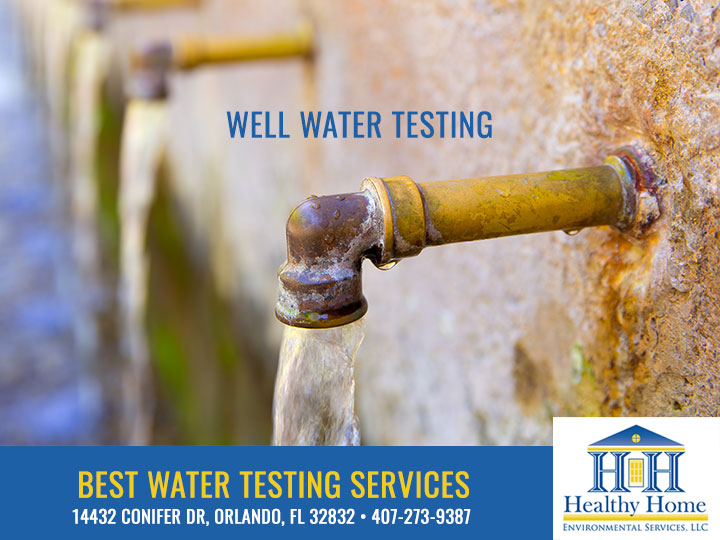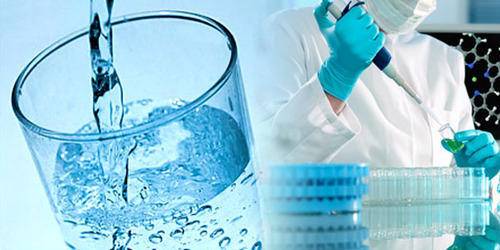The Value of Choosing Water Testing Services Tampa for Your Wellness
The Value of Choosing Water Testing Services Tampa for Your Wellness
Blog Article
Learn How Water Testing Can Discover Pollutants and Shield Your Family's Wellness
Recognizing the value of water screening is important for securing your family's health, as our water supply can harbor unseen dangers. By discovering the mechanics of water screening, one can discover the unseen hazards prowling in relatively excellent water resources.
Relevance of Water Examining
Acknowledging the crucial role water plays in sustaining life, the value of water screening can not be overstated. Water is an essential resource, important for alcohol consumption, food preparation, hygiene, and various commercial procedures. Its quality directly influences public health and wellness and wellness. Consequently, making sure that water is devoid of dangerous compounds is essential for maintaining healthy and balanced areas and communities.
Water screening serves as an aggressive measure to determine prospective hazards that may endanger water high quality. Through organized evaluation, it helps spot physical, chemical, and organic parameters that might present dangers to human health. Normal screening permits the early detection of concerns, promoting timely interventions to avoid prevalent contamination and linked health issue.
In addition, water testing sustains regulatory conformity, making certain that water service providers satisfy recognized security standards and standards established by governmental authorities. It fosters transparency and accountability, constructing public rely on the water supply system. Screening supplies beneficial information that educates water management approaches, enabling sustainable use and preservation of this priceless resource.
Basically, water screening is a crucial tool that safeguards public health, ensures regulative adherence, and promotes the sustainable monitoring of water sources. Its relevance in protecting both communities and individuals can not be undervalued.
Usual Water Impurities
Amongst the various aspects that can jeopardize water quality, typical water pollutants consist of a variety of physical, chemical, and biological materials that present substantial risks to human health and the setting. Physical pollutants typically involve debris or organic products put on hold in water, which can impact quality and taste. Chemical pollutants include a wide variety important, including pesticides, herbicides, metals like lead and mercury, and industrial chemicals. These chemicals can infiltrate water products via farming runoff, industrial discharges, or leaching from pipes and tank.
Organic impurities, primarily germs, viruses, and protozoa, emerge from human and animal waste getting in water systems. Pathogens such as E. coli, Giardia, and Cryptosporidium are well-known for triggering intestinal diseases and can be particularly hazardous to young youngsters, the senior, and those with compromised immune systems. Nitrates and nitrites, commonly stemming from fertilizers, posture an additional health danger, specifically to infants, possibly bring about problems like methemoglobinemia or "blue infant syndrome."
Furthermore, emerging impurities, including pharmaceuticals and personal care products, have elevated concerns because of their perseverance and unknown long-lasting results. Understanding these contaminants is essential for implementing efficient water therapy techniques and ensuring secure alcohol consumption water.
Just How Water Screening Functions
Recognizing the range of contaminants in water highlights the importance of effective screening approaches to safeguard public health and wellness. Water screening is an organized procedure made to determine and quantify various impurities that can position risks to human health and wellness. This entails a series of analytical treatments that spot pollutants such as microorganisms, heavy metals, natural chemicals, and various other toxins. The screening procedure normally begins with example collection from the water resource, making certain that samples are representative and uncontaminated during the collection process.
Chemical testing often involves spectrometry or chromatography, both of which can identify and determine certain chemical compounds. Additionally, physical attributes like shade, ph, and turbidity are examined to provide insight into the general quality of the water.
The accurate methods utilized in water testing depend upon the details pollutants of problem and the water's intended usage. By constantly applying these strenuous screening protocols, researchers and public health authorities can ensure the security and top quality of water, thereby securing communities from prospective health and wellness threats.
Choosing the Right Examination
Just how does one determine one of the most appropriate water test for their demands? Choosing the appropriate test involves comprehending both the certain attributes of the water resource and the prospective pollutants that may have a peek at this website be present. The primary step is examining the water resource-- be it local, well, or surface water-- as each has unique threats. Metropolitan water may call for screening for disinfectant by-products, while well water may require screening for nitrates, microorganisms, and hefty metals.
Next, take into consideration current occasions and ecological variables. Neighboring farming tasks may demand testing for pesticides and herbicides, whereas commercial zones might call for look for chemical contaminants. Additionally, any kind of modifications in water appearance, taste, or odor ought to prompt particular screening for usual contaminants like lead, chlorine, or organic pathogens.
Professional water screening solutions offer thorough packages that target a variety of potential contaminants. These packages commonly straighten with standards set by the Environmental Defense Firm (EPA) or neighborhood wellness divisions. For a much more customized technique, speaking with a water quality specialist can provide understandings into which specific examinations are needed based upon regional worries and specific health needs, making certain the security of your home's well-being.

Maintaining Water Security

In enhancement to testing, correct upkeep of water supply plays a vital function. This consists of servicing and examining pipes systems, storage space tanks, and septic tanks to avoid leaks or backflow that could present contaminants - Water Testing Service. Using water purification systems developed to deal with specific neighborhood issues can better guard versus contaminations, supplying an additional layer of security
Public understanding and education are similarly essential in keeping water safety and security. Communities ought to be informed regarding potential threats connected with regional water sources and the essential steps to reduce them. Urging public involvement in water safety and security initiatives fosters a cumulative responsibility that enhances general efficiency.
Eventually, an extensive approach that incorporates regular testing, system upkeep, and neighborhood participation is vital in securing water quality. By doing so, family members can be assured of tidy and risk-free water, protecting their health and wellness.

Conclusion
Routine water testing is essential for determining pollutants such as bacteria, heavy steels, and chemicals that informative post present health and wellness threats. By analyzing water samples, undetected dangers can be identified, making certain the stipulation of secure alcohol consumption water.
Recognizing the importance of water screening is essential for guarding your family's wellness, as our water supply can nurture hidden dangers.Water screening offers as an aggressive action to identify potential dangers that may endanger water high quality.Moreover, water testing supports regulative compliance, making certain that water Find Out More suppliers fulfill recognized safety and security criteria and standards established by governmental authorities. Local water might require screening for disinfectant by-products, while well water may require screening for nitrates, microorganisms, and heavy metals.
Regular water testing is a critical part in keeping the high quality of water sources, allowing timely treatments prior to impurities get to hazardous levels.
Report this page